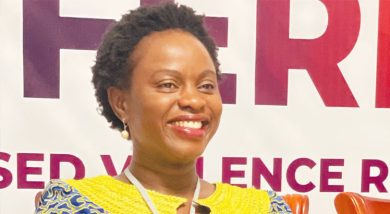Fatou bensouda: first woman and first african ICC prosecutor
Fatou Bensouda was the International Criminal Court (ICC) prosecutor between June 2012 and June 2021.
The Gambian is the first woman and first African was elected by consensus by the Assembly of States Parties to serve in that capacity.
Bensouda was nominated and supported as the sole African candidate for election to the post by the African Union
Under her leadership, she reinforced the capacity of the office through a number of strategic and managerial initiatives and expanded her office’s activities to cover 14 investigations and countless active preliminary examinations in conflicts around the world.
She strived to advance accountability for atrocity crimes, highlighting in particular the importance of addressing traditionally underreported crimes such as sexual and gender-based crimes, mass atrocities against and affecting children, as well as the deliberate destruction of cultural heritage within the Rome Statute framework.

Bensouda has Between 1987 and 2000 served as senior State counsel, principal State counsel, deputy director of public prosecutions, solicitor general and legal secretary, Attorney General and Minister of Justice of The Republic of The Gambia.
Her international career as a non-government civil servant formally began at the United Nations International Criminal Tribunal for Rwanda, where she worked as a legal adviser and trial attorney before rising to the position of senior legal advisor and head of the legal advisory unit (2002 to 2004).
She joined the ICC as first deputy prosecutor.
The lawyer is the recipient of numerous awards, including the distinguished International Commission of Jurists’ International Jurists Award (2009), the 2011 World Peace Through Law Award, the American Society of International Law’s Honorary Membership Award (2014), and the XXXV Peace Prize by the United Nations Association of Spain.
Bensouda has been listed by Time magazine as one of the 100 most influential people in the world (2012); by the New African magazine as one of the most influential Africans.
She was featured by Foreign Policy as one of the leading global thinkers (2013), by Jeune Afrique as one of 50 African women who, by their actions and initiatives in their respective roles, advance the African continent (2014 & 2015.
Forbes magazine listed her as one of Africa’s 50 Most Powerful Women (2020).
In 2018, she joined the eminent roster of International Gender Champions, a network of ‘gender champions’ founded in 2015.
Bensouda was nominated for the 2021 Nobel Peace Prize, in recognition of their accomplishments and work in advancing international criminal justice, without fear or favour.
She was born on January 31 1961 into a polygamous Muslim family in the Gambia’s capital, Banjul as one of more than a dozen siblings.
Her father, Omar Gaye Nyang, who worked for the government as a driver, was also a prominent wrestling promoter in the Gambia.
He was married to two wives. Though he died while Bensouda was still young, his two wives continued to raise her and her other siblings.
Bensouda began her early education in the Gambia where she obtained both her primary and secondary school qualifications.
During her secondary school days, she used to sneak into nearby Courts to watch court proceedings and quickly developed a feeling that women were not adequately protected by the law in The Gambia.
She has said this early experience informed her decision to pursue justice and accountability, and therefore, a career in the legal profession.
In 1982, in line with her dreams and aspirations, Bensouda moved to Nigeria to pursue a Bachelor of Law degree (LLB) at the University of Ife (now Obafemi Awolowo University).
After graduating from the University of Ife in 1986, she enrolled at the Nigerian Law School in Lagos, where she obtained her Barrister-at-Law (BL) professional qualification in 1987.
She was called to both the Nigerian and the Gambian bars in the same year.
Bensouda later earned a Master’s degree from the International Maritime Law Institute in Malta, becoming the Gambia’s first international maritime law expert.
Her journey to the ICC exemplifies how African women in the legal profession are breaking boundaries and challenging masculine domination of space and authority in the international justice arena, despite implicit biases and barriers that challenge their success.
In an interview with the International Bar Association in 2015, commenting on what her role as ICC chief prosecutor should mean to African women in the legal profession, Bensouda said: “My role as ICC prosecutor, I hope, encouraged younger women, other women, to realise that there is no glass ceiling. Whether it’s real or imagined, there is no glass ceiling, and we have the potential to fully grow into what we can be. I sincerely believe that the people of the next generation, or the younger generation who are coming up, will have this in mind. What is important, always I think, is to work very hard and stay focused.” —Nelsonmandela.org/ Africanwomeninlaw.com




